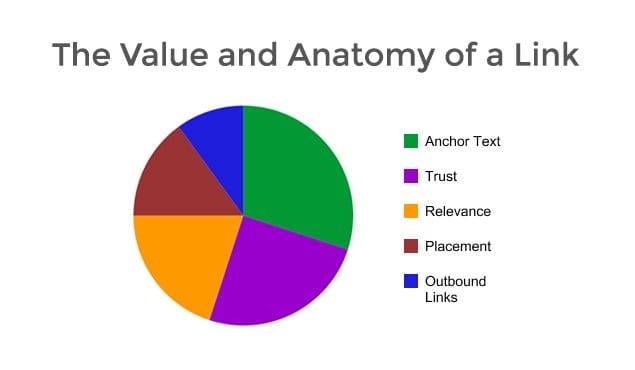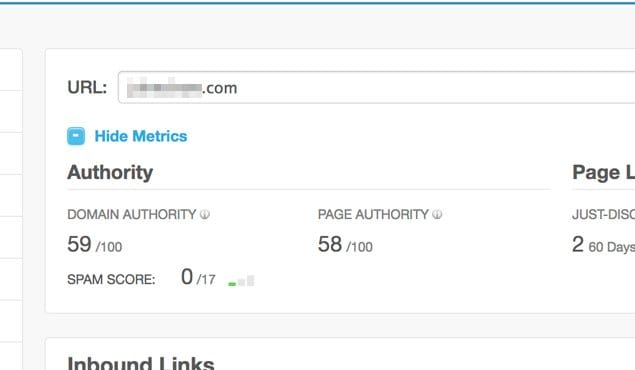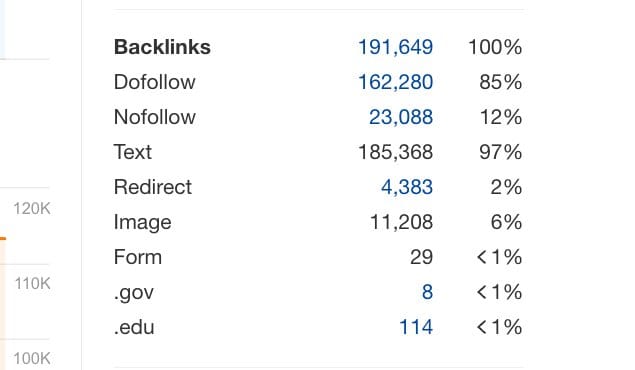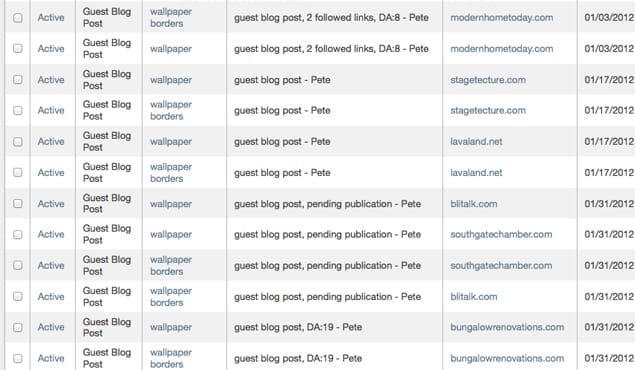Writing guest posts is a high risk, high reward venture. It can be moderately valuable to your marketing presence, or it can be detrimental on a varying scale. A few bad guest posts aren’t going to destroy your site, but neither are a few good posts going to skyrocket you to fame.
Guest blogging is not an onsite SEO factor. It’s all about the inbound marketing. So, let’s list the potential benefits that guest posting can bring to your site.
- The host site can link to your site.
- The host site can send traffic to your site.
- The host site can promote your site through their social media.
- The host site can promote your profiles through social media.
- Your name and face on the guest post can promote user awareness.
- Your brand name and logo on the guest post can promote brand awareness.
- Sufficiently excellent content can become a hub of value with your name attached.
Most of this, however, does not affect your SEO or your search engine rankings. Google doesn’t really monitor your traffic in anything more than a general sense, though it often seems otherwise. Large sites rank highly because of their links and content, not because of their traffic. Traffic is the symptom, not the cause.
In fact, the only element of guest blogging that directly influences SEO is the link, the first bullet point. This link, as well, can be either a benefit or a detriment, and it can either be low value or high value. Let me explain.
The Value of A Link
A link from site 1 to site 2 is treated as a vote of confidence and value by the search engines. It’s akin to having site 1 say “I think site 2 has some value.” This is the backbone of how the internet works these days, and it’s the foundation of how Google works.
In the old days, a link was a link. It didn’t matter where the link came from; a link was worth, say, one point. A site with 20 points would rank higher than a site with 10, even if the site with 20 got them all from one site and the site with 10 got them from 10 different sites. This was, obviously enough, changed very quickly.
These days there is an absolute ton of nuance to the value of a link. Here are some possible modifiers:
- If the link comes from another site you own, it might be worth a little less.
- If the link comes from a site with a dramatically different topic, it will be worth a lot less.
- If the link comes from a highly respected authority in your industry, it will be worth more.
- If the link comes from a restricted domain, such as a .gov site, it will be worth more.
- If the link is tagged with a nofollow attribute, it will be worth nothing.
This is just a little bit of what goes into calculating the value of a link. It’s why, when you’re looking for a site to guest post on, you need to be picky.
You want your links to be valuable to you. This means they need to be as unique as possible, from as high a value a site as possible, and in as valuable a piece of content as possible. If any of these is not met, the link falls dramatically in value.
For example, a link from a high value site that has nothing to do with your industry is probably not going to be very valuable to you. A link from a spam site, even if that site is in your industry, is going to be valueless or even detrimental. A link tagged nofollow won’t exist, as far as the search engines are concerned.
You thus need to think pretty hard about the site you want to guest post on. The site needs to be relevant and high quality if you want the link to be beneficial to your site. If you just throw your guest posts around anywhere, you’re going to get a lot of low quality links, and it’s not going to help you all that much.
The Value of Mid-Tier Links
Now, there’s a middle range between the terrible, valueless links you get from low quality and spam sites, and the high-end industry leaders. They are, for the most part, your peers. They’re sites with a middling amount of traffic, some industry recognition, but nothing nearing the status of influencer.
These sites, individually, aren’t going to give you a significant boost to your SEO. You probably won’t see more than a wiggle in your search rankings, and your traffic probably won’t increase all that much. So what use are they?
There are two uses for these middle-tier links. The first is the slow and gradual build-up of SEO value. Think of it like grinding for experience in a video game, or lifting weights in a gym. You’re not going to be able to go into a gym and lift a few weights and suddenly have superhuman strength. However, if you lift a few weights each week, you’ll gradually get stronger until you’ll reach a fitness level where you’re quite strong. You won’t reach the level of a competitor in the World’s Strongest Man competition, but neither will your SEO reach the level of Forbes through minor links. You need a lot of care and attention to other aspects of SEO/fitness, like nutrition, general activity, sleep, and training.
The other use is as a sort of reinforcement factor for trust. Google understands a lot of the common ways of trying to “scam” the system with links, and as such they monitor signs of an unnatural link profile. Yes, a link from Forbes is going to be valuable, but if all of your links come from Forbes, you see a lot of diminishing returns. The first one might be worth 1,000 “points,” then the next only 500, and then 300, then 150, then 100, and so on. Eventually, another link from Forbes is no more valuable than a link from your peers.
What you want is a diverse link profile. Many links from numerous sources will beat out many links from the same source in a contest every time. Link diversity is incredibly important, and it makes individual mid-tier links more valuable than they might otherwise be, because getting a lot of them from different sources reinforces the natural impression of your link profile.
You can also think of link diversity as a sort of resilience. If something happens and Google starts looking harder at your site as if it’s some sort of spam site, they’ll do some pretty deep investigation. Your natural and diverse link profile will help you, because spam sites don’t tend to put in that much effort, or earn those kinds of links.
Indirect Value from NoFollow Links
Now, since I’ve mentioned that nofollowed links might as well not exist, you might think that they’re not worth getting. This is a trap! There are two reasons why you want nofollow links.
The first is, again, link diversity. A lot of low-quality webmasters think that nofollowed links are valueless, and so they avoid them. They seek out only the finest vintage followed links, and as such have a seriously unnatural link profile. Google sees this, understands that they’re trying to gain an advantage, and puts them in their place.
The other reason is for all of the “second stage” or indirect value you get out of it. I cover this topic in much greater detail here, but I’ll summarize for you if you don’t have time to read.
- People click links. Even if the link is nofollowed, it still exists, and regular users and readers of the site in question can still click through to visit your site. Make your link compelling enough and they’ll be coming through in droves, at least for the first day or two after the link is posted.
- The content you post has your byline attached. If the content is sufficiently awesome, people will associate it with your name or company name. They will also, if you get an image, associate your image with the content. Then, later, they’ll recognize your face or logo on other posts on other sites. Even if they don’t remember specifically what it was you wrote, they’ll have a general feeling of “this guy writes good content” and will give slightly more preference to other pieces of your content in the future. The more posts you have around the web, the more they come to recognize you and give you that trust.
There are also such things as implied links or brand mentions. For an example, take a look at this very article. I’ve mentioned Forbes several times, but none of the links I’ve posted actually link to Forbes. These aren’t links, and thus don’t have the value of links, but they raise brand awareness. They are what Google calls brand mentions/implied links, and they’re a core component of modern SEO. Brand mentions function as awareness indicators, and a site with more brand awareness is going to do better in search.
Bringing it Together
So what about all those other factors up top? Social media is a big one, and it plays heavily into influencer marketing. Guest posts open you up to shares from big names in the industry. If you get a post on a high end site, that site is likely to promote your post, and now you have an influencer vouching for your content. Even your peers, with those mid-tier sites, give you some additional exposure to segments of an audience you don’t otherwise get to reach.
Social media also gets you links, both directly and indirectly. When people post your content, even your guest posts, on Facebook or Twitter, it’s a link. Some people will then choose to link to your main site instead. Other people will not share you on social media, but will link to your posts on their own site. One good guest post can turn into several links from other, tertiary sites as well as the primary site you posted on.
So, how can guest posting help your SEO? You can get a diverse link profile from a sustained campaign of guest posting, which helps you grow in long term SEO, as well as giving you resilience against potential penalties or suspicion of black hat activity. You can get traffic on an immediate basis, though the traffic that comes from guest posting usually tapers off fairly quickly. You can get a lot of brand recognition and name awareness, which work together to help boost all of your content around the web.
On the other hand, rampant guest posting without a plan, without care, on sites that would be considered low tier, valueless, or spam, can hurt your site. This is just putting your name and content on sites that aren’t related to you or aren’t valuable in any way. If you have links on a site that is delisted for being spam, those links are going to revert to zero value, and you lose any minor value you get. If you have too many links from spam domains, you can see actual penalties, as you are now suspected of black hat link schemes. After all, that’s one of the primary reasons those kinds of sites exist.
If you’re careful with your guest posting, you can get a lot of benefit, both in the short term from high profile sites and in the long term with link diversity and varied traffic sources. You just need to be picky and protect yourself.
 ContentPowered.com
ContentPowered.com








